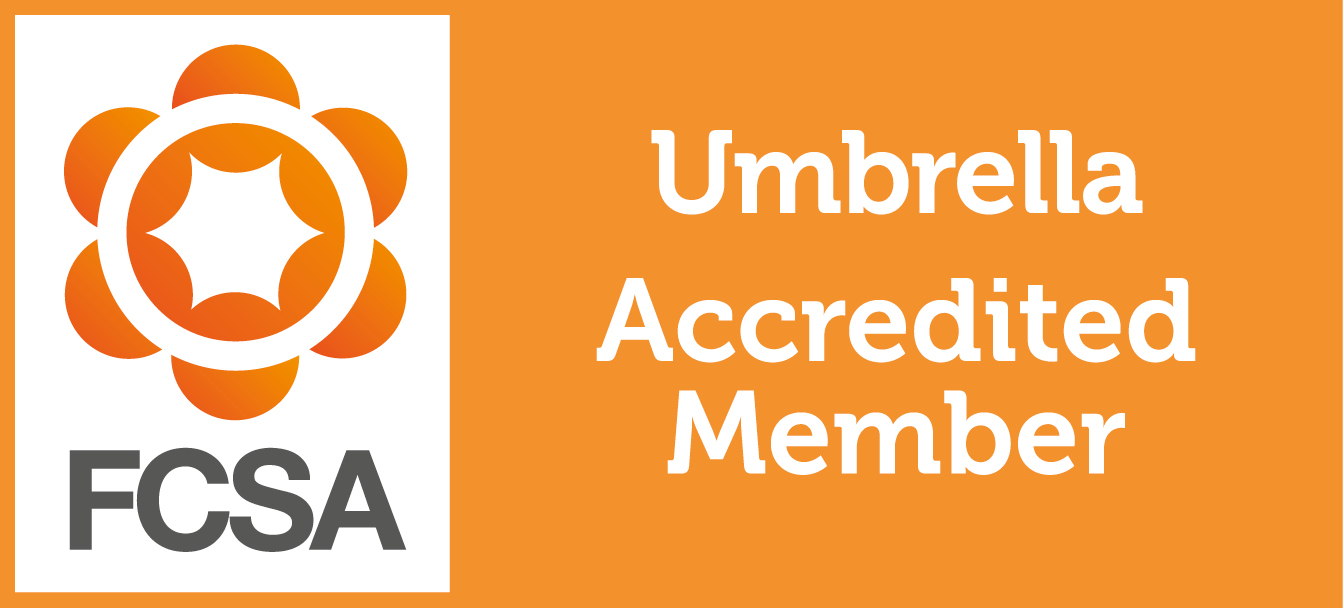
The contracting world is replete with options and opportunities but also has its share of complexities and challenges. One such challenge is the tax legislation commonly known as IR35. It is a set of rules that determine whether a contractor should be taxed in the same manner as a permanent employee or as a self-employed individual. In this article, we will look at what IR35 tax legislation is and how an umbrella company can benefit contractors inside IR35.
IR35
IR35 is designed to identify contractors and businesses avoiding tax by working as ‘disguised employees.’ These individuals work for a business through an intermediary—usually their own limited company—and would be classified as employees if the intermediary were not in place. The primary objective of IR35 is to ensure that these so-called disguised employees pay broadly the same Income Tax and National Insurance Contributions (NICs) as regular employees.
IR35 legislation applies to both the public and private sectors, but the rules for each differ slightly. One of the key aspects of IR35 is determining whether a contract falls “inside” or “outside” of IR35 rules, which in turn affects how taxes are paid.
Inside IR35:
- Contractors deemed to be “inside IR35” are considered, for tax purposes, to be employees.
- This classification means the contractor must pay similar taxes and National Insurance Contributions as a regular employee.
- The benefits of operating through a limited company, which include more efficient taxation on dividends and broader business expenses, are significantly reduced for those who fall inside IR35.
Outside IR35:
- A contract “outside IR35” suggests that the worker is deemed genuinely self-employed for tax purposes.
- In this case, the contractor can draw income from the limited company more tax-efficiently, often through a combination of salary and dividends.
Factors for determination:
Determining whether a contractor falls inside or outside IR35 involves various factors. These include but are not limited to:
- Control: The degree to which the client controls what, how, when, and where the worker performs their services.
- Substitution: Whether the worker can send someone else in their place.
- Mutuality of Obligation: Whether there is an ongoing commitment to offer and accept work.
Contractors often seek professional advice to assess their IR35 status due to the complexity and the financial implications of being classified one way or the other. There are penalties for incorrect classification, so understanding the intricacies of IR35 is crucial for compliance.
One effective way to navigate this tricky landscape is by using an umbrella company, particularly when your contract is deemed to be inside IR35. Below, we’ll explore why an umbrella company is often the best choice in such circumstances.
The convenience for beginners
Let’s start with the basics. An umbrella company is an intermediary between the contractor and the client (or agency). The umbrella company invoices the client, receives payment, deducts necessary taxes and National Insurance Contributions (NICs), and then pays the contractor a net salary. For those new to the contracting world, this can be a godsend.
Setting up a limited company involves a fair amount of paperwork, accounting responsibilities, and legal formalities. Even keeping track of your invoices can become a hassle. An umbrella company eliminates most of these complexities, allowing you to focus on your work rather than administrative tasks. This simplicity is especially beneficial when you’re just getting started and unfamiliar with the intricacies of tax laws like IR35.
Streamlined administrative processes
Working through an umbrella company takes the burden of administration off your shoulders. You only need to submit your timesheets to the umbrella company, which then invoices the recruitment agency for the work you’ve performed. The umbrella company is responsible for all the financial administration, leaving you to focus on your work.
The administrative tasks related to compliance with IR35 can become cumbersome when working through a limited company. You may find yourself embroiled in the complex task of calculating ‘deemed payments’ and ensuring your company’s tax compliance. As experts in tax legislation, Umbrella companies can manage these complexities for you.
Financial transparency
One of the key benefits of an umbrella company is providing a ‘Key Information Document’ (KID) and a ‘reconciliation statement.’ These documents give you a clear picture of your gross pay, any deductions made, and your take-home pay. They account for costs like the umbrella company’s operating margin, employer National Insurance contributions, and even holiday pay deductions. This transparency allows you to have full control over your finances.
Employment rights and benefits
As an umbrella company employee, you enjoy the same employment rights as a permanent employee. You are entitled to the National Minimum Wage or National Living Wage and have the right to paid holidays. You also have the protection of an employment contract, which outlines the terms and conditions of your employment, ensuring your rights are safeguarded.
Ease of setup for short-term contracts
Another situation where an umbrella company comes in handy is for short-term contracts. Setting up and running a limited company may not be worth the effort and costs if you plan to contract only for a few months. Not only is it easier to start with an umbrella company, but it’s also simpler to stop contracting when you decide it’s time to move on. In contrast, dissolving a limited company involves another round of paperwork and possibly even legal fees. An umbrella company provides the flexibility to engage in short-term contracting without these burdens.
Avoiding risks and pitfalls
Working through an umbrella company helps you stay away from potential tax avoidance schemes (such as mini umbrella companies) that bend the rules of the tax system. These can come with severe penalties and are not worth the risk. Since the umbrella company handles all tax-related activities, you can have peace of mind that your financial dealings are above board.
Client or agency requirements
The complexities of IR35 don’t just affect contractors; they also impact end clients and agencies. The latest reforms in IR35 legislation have shifted the responsibility of determining a contractor’s IR35 status from the contractor to the end client. This change has made some clients and agencies wary of engaging with limited companies, leading them to prefer working with contractors through umbrella companies. By doing so, they can simplify their administrative load and minimise the risks associated with accidental non-compliance with IR35 rules.
Continuity of Employment
Using an umbrella company has many benefits, but one of the main advantages of using an umbrella for your payroll is Continuity of Employment. But what does this mean?
When working on multiple assignments, you can use the same umbrella company. This allows you to have the same employer for a prolonged period of time (Continuity of Employment). This is helpful for contractors and freelancers seeking financial such as a bank loan or mortgage. It also helps keep your financial affairs straightforward.
Registering with an umbrella company is easy
When you register with an umbrella company, you are legally required to provide a series of personal information, including full name, address, contact information, National Insurance Number, bank details, and more. You must also provide proof of your identification and Right to Work (RTW) in the United Kingdom. Finally, the umbrella will send you a Contract of Employment. Ensure you read this thoroughly and only sign and return it if you’re fully satisfied with the content.
The steps about may sound highly time-consuming. However, in reality, it should take you long. Providing the umbrella with the information they need to process your payroll shouldn’t take much longer than 10 to 15 minutes. However, make sure you read the Contract of Employment thoroughly. Also, once you have undergone the umbrella company registration process once, you’ll know what to expect if you switch to another umbrella at a later date, and the process will become easy.
Conclusion
If your contract falls inside IR35, working through an umbrella company can offer you many benefits. From simplifying your administrative tasks to offering more flexibility and better alignment with client preferences, umbrella companies provide a hassle-free way to navigate the intricacies of IR35. They may not offer the same level of financial advantage as a limited company under different tax circumstances, but they do provide a convenient and practical solution for those looking to contract inside IR35. Therefore, if you find yourself inside the IR35 net, don’t consider it a setback; view it as an opportunity to make the most of the benefits an umbrella company has to offer.
Contact Umbrella Company UK for a tailored take-home pay calculation
Please click here to request a free, accurate and tailored umbrella company take-home pay calculation from Umbrella Company UK. If you are interested in joining our leading service, or you would like to discuss your options with our professionals, please schedule a call now, or call 01707 669023.
Umbrella Company UK is FCSA accredited and SafeRec Certified
Umbrella Company UK is proudly accredited by the Freelancer and Contractor Services Association (FCSA) – the UK’s leading professional body committed to ensuring the supply chain of temporary workers is compliant with UK tax law and HMRC’s rules and regulations. To achieve FCSA accreditation, we underwent a series of audits and assessments and successfully proved we adhere to the FCSA’s strict Codes of Compliance.
We are also delighted to be one of the first SafeRec Certified Umbrella Companies. SafeRec is revolutionising compliance within the contractor payroll sector. Powered by AI, SafeRec audits every payslip we produce for our employees. Each time an employee is paid, they receive an audit report which explains whether or not their payslip has been processed compliantly and ethically. This level of transparency has never been achieved before within the sector, and it puts the power in the hands of our employees.
Umbrella Company UK values compliance and ethical practices, but our SafeRec Certification allows us to prove this every time we pay an employee. For more information about SafeRec, please read our blog: Umbrella Company UK joins elite circle of Certified SafeRec Umbrella Companies.






